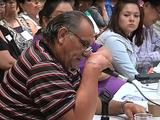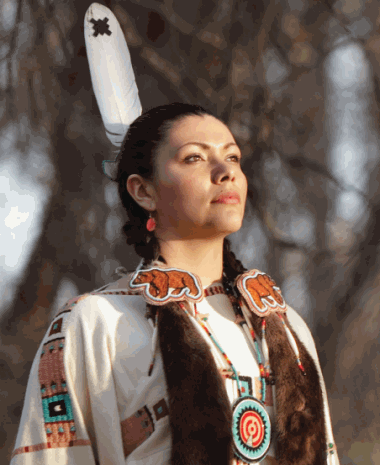
Aug 7, 2013
by Claire Anderson – MTN News
GREAT FALLS, MT – Senator Max Baucus met with Montana Tribal leaders and government officials Tuesday to hear more about the problem of violence against women and children on state’s Indian reservations.
The urgencies is that we have a cycle of violence occurring within our communities that needs to break,” Northern Cheyenne Tribal Councilwoman Jace Killsback said.
Statistics show that the number of cases of violence against women and children on Montana Indian reservations are remarkably high.
“We all have an obligation all of us in Montana, on and off the Reservation, to do something about [it],” Baucus stated.
Baucus says an average of 7,500 children on reservations are victimized every year, and more than one in three Native American women have been raped or sexually assaulted.
“It’s always been an issue. We look at it from a historical perspective that our value system of our family’s was broken down through government policies,” Killsback explained.
I see it every day. I live it at home. You know the social deals that we have – and the lack of funding to address the problems that we have – hopefully these types of [forums] that we have will help us,” Fort Peck Reservation Councilman Robert Welch said.
Montanans, both on and off the reservations, are now looking for solutions.
“It’s up to all of us to do our very best to solve this and to prevent all that from reoccurring as much as we possibly can,” Baucus added.
Reservation leaders are hoping to establish places like safe havens, youth centers, and substance abuse programs thanks to federal funding, but these can’t come to life without monetary resources.
“The biggest issue now is resources. We don’t have the resources to develop…to promote federal programs for substance abuse [or] for dealing with child abuse, Killsback stated.
While lack of funding isn’t a problem unique to Montana’s Indian Reservations, tribal leaders, along with Sen. Baucus, hope these listening sessions are the stepping stone to create solutions – not just empty promises.


